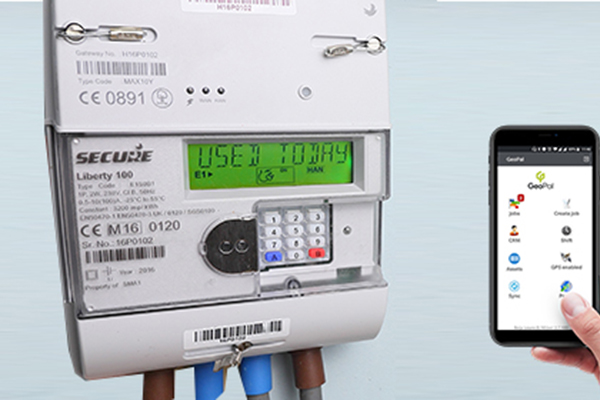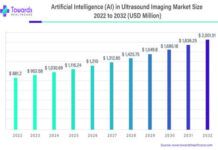The smart meters market sales accounted for USD 28.03 billion in 2021. It is projected to grow by US$ 65.6 billion by 2028 at a CAGR of 11.5% every year. The growing demand for smart electricity meters is driving the growth of the global smart meters market.
The global smart meters market is expected to develop due to increasing government spending on infrastructure projects over the forecast period. Growing government initiatives are another element driving the growth of the global smart meter market.
For commercial, residential, and industrial purposes, smart meters are widely used in both developing and developed countries. In the following years, it is predicted that 148 million smart meters would be placed globally. However, concerns such as rising maintenance and installation costs are posing a significant obstacle to the worldwide smart meter market’s expansion. The rising need for energy and power, on the other hand, is creating profitable chances for the worldwide smart meter market to develop.
Report Scope of the Smart Meters Market
| Report Coverage | Details |
| Market Size by 2030 | USD 65.6 Billion |
| Growth Rate from 2022 to 2030 | CAGR of 11.5.5% |
| Largest Market | Asia Pacific |
| Fastest Growing Market | Europe |
| Base Year | 2021 |
| Forecast Period | 2022 to 2030 |
| Segments Covered | Product, End Use, Component, Technology, Communication and Geography |
Report Highlights
- By product, the smart electricity meters segment holds the largest market share in the global smart meters market. The rise of the smart electricity meter industry is being aided by rising urbanization. The segment’s rise is also being fueled by the expanding number of smart city initiatives. As a result, the smart meters market is rapidly expanding.
- By end-user, the residential segment holds the largest market share in the global smart meters market. Due to rising energy usage, the demand for smart meters is increasing in the residential sector. Consumer gadgets are widely used in residential locations. As a result, the demand and need for smart meters among residential end-users are rapidly increasing.
Regional Snapshot
Asia-Pacific is the largest segment of the smart meters market in terms of region. China is dominating the smart meters market in the Asia-Pacific region. The expansion of the smart meter market in the region is being driven by increasing infrastructure investments. China is investing extensively in infrastructure to develop a new 40,000-kilometer gas pipeline that will connect 470 million people, according to the Groupe Speciale Mobile Association. Furthermore, industry participants are employing distinct techniques to drive the smart meter market forward.
Europe region is the fastest-growing region in the smart meters market. The UK, France, Spain, and Italy hold the highest market share in the Europe smart meters market. The need for smart meters in the region is being driven by the increasing number of smart electric meter installations. The presence of significant market players increased usage of novel technologies, and increasing acceptance of renewable energy sources are all driving the growth of the smart meter market in Europe.
Market Dynamics
Drivers: Surge in consumption of electricity
As per the U.S. Energy Information Administration’s International Energy Statistics, worldwide electricity consumption continues to grow faster than the global population, resulting in a surge in the average amount of power and energy consumed per person. This factor results in an increase in demand for smart electric meters. As a result, the surge in consumption of electricity is boosting the growth of the global smart meters market.
Restraints: High initial costs
Smart meters manufacturing units require a large amount of money. In addition, not only cost of setup is high but also the operations and maintenance require a huge capital amount. Thus, the smart meters set up requires high investments, which is restricting the expansion of the global smart meters market over the projected period.
Opportunities: Growing government initiatives
The government of emerging and established nations is highly invested in the installation of smart meters. The government is providing tax benefits to the manufacturers of smart meters such as tax incentives and tax subsidies. Some government agencies are also collaborating with market players for the development of the smart meters market. As a result, growing government initiatives are providing lucrative opportunities for the growth of the global smart meters market.
Challenges: Lack of skilled professionals
The installation process of smart meters is quite complex and complicated in nature. For the installation of smart meters, skilled and trained professionals are required. These professionals should follow the mandates of the government during this process. There should be data security and privacy associated with smart meters. Thus, the lack of skilled professionals is the biggest challenge to the growth and development of the global smart meters market.
Recent Developments
- PayGo and Landis+Gyr announced their partnership in January 2021, by signing payment and billing partner agreements. Landis+Gyr sophisticated metering customers will be able to use PayGo’s payment services and prepaid digital billing as a result of the agreement. The utility prepayment systems have proven to be beneficial to both consumers and utilities, giving customers more control over their energy utilization and encouraging them to use more energy.
- SENSUS USA Inc. teamed with Grey Stone Corporation to install 12,000 new smart meters in March 2020. New Stratus IQ household smart meters will be installed as part of the cooperative’s smart utility network, which will also see an update from wire technology to the FlexNet communication network.
Some of the prominent players in the global smart meters market include Holley Metering Limited, Neptune Technology Group Inc., Honeywell International Inc., Siemens AG, Kaifa Technology, Suntront Technology, Wasion Group, Aichi Tokei Denkei, Badger Meter, and Sensus.














